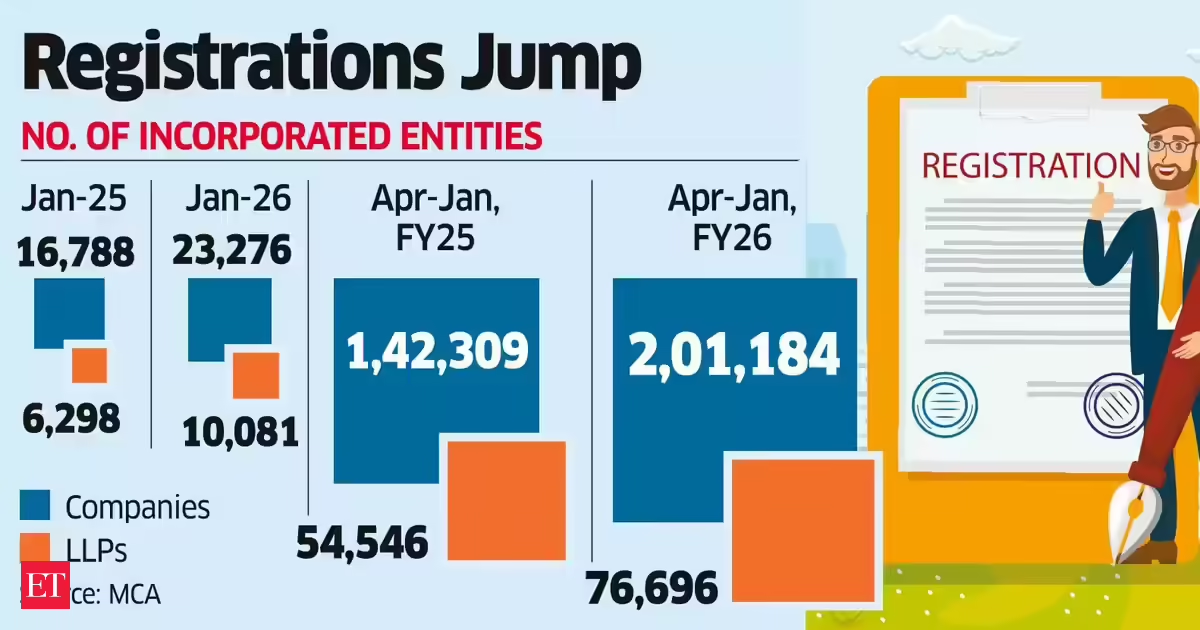Politics
Minister Calls Reform ‘Retirement Home For Failed Tories’

A Labour minister humiliated a Reform politician on BBC Question Time by describing the party as a “retirement home for failed Tories”.
Nadine Dorries – a former Conservative MP, ex-culture secretary and strong ally to Boris Johnson – defected to Reform last September, claiming the Tory Party was “dead”.
When discussing a question about climbing house prices in Bristol, Dorries acknowledged that the Conservatives had also failed to reach their housing targets when in office – and predicted Labour will also miss their 1.5 million new homes goal.
Dorries, now a Daily Mail columnist, claimed the problem was the “two main parties cannot lead the country”, adding: “That’s why I went to Reform.
“It’s time for a party that is going to be absolutely radical, that is going to bring forward change, that is going to change this, introduce growth, and change this housing.”
Defence minister Luke Pollard replied: “I don’t think you can have a new party when you’re just a retirement home for failed Tories.”
Amid widespread applause and laughter from the audience, he added: “That’s not a new party Nadine, it’s not.”
Dorries replied: “You can’t make that accusation without me coming back. Reform is the party of hundreds and thousands.
“That’s the difference between me and you. We’re a proper grassroots party of hundreds of thousands!”
Reform currently has eight MPs, with each one – including Nigel Farage – being a member of the Conservative Party at some point.
A total of 27 former Tory MPs have defected to join the rising right-wing party so far, including Dorries, ex-home secretary Suella Braverman and former Tory frontbencher Robert Jenrick.
According to Best for Britain’s tracker, Tory defections to Reform rose by 462% in 2025 compared to 2024 with 81 serving Reform councillors previously holding office for the Tories.
Politics
Matt Goodwin wants to tell young girls when to have children

As we’ve reported, the Reform candidate in Gorton & Denton is the academic and establishment-insider Matt Goodwin. Goodwin is now attracting controversy because he wants to tell young women when to breed:
Reform by-election candidate calls for ‘young girls’ to be given ‘biological reality’ check
Matt Goodwin argued ‘young girls’ should be explained ‘the biological reality’ that ‘many women in Britain are having children much too late in life’https://t.co/bz0y5apGEA
— Reform Party UK Exposed 🇬🇧 (@reformexposed) February 12, 2026
Lets be honest, this is creepy af from Matt Goodwin
Last week, Matt Goodwin stuck his foot in it when he suggested people who don’t have kids should be taxed more. As you can imagine, that went down like a lead balloon with infertile women. As Rachel Charlton-Dailey reported for the Canary:
I can’t imagine the pain that this would cause to those who are struggling with fertility. On top of the emotional and physical toll this puts on you will be financial pressures. For those of us who are infertile, it sends one message. You are not good enough and deserve to be punished for failing as a woman.
I had an elective hysterectomy in 2017 after over a decade of pain. I chose my own health over a condition that was making me want to die, for the sake of one day having a baby. Many would call my decision selfish, but I frankly don’t give a fuck what people who would rather I were in pain think of me.
As much as I loathe a Handmaid’s Tale comparison, this is very apt here. In the novel, working-class women who are infertile are cast out of society. As they have no purpose in a society that values families over all else.
Goodwin was also criticised for the following:
Reform’s by-election candidate suggested people who don’t have children should pay more tax.
He wants the govt to “remove personal income tax for women who have two or more children”.
Do they think women are baby producing machines?
Insane policies.https://t.co/KWmx5xfuXh
— Prem Sikka (@premnsikka) February 7, 2026
Fertility
Matt Goodwin has looked at the birth rate problem and decided that the solution is to lecture young girls on when to breed.
I myself have chosen not to have kids because of the absolute state of everything. I know for a fact I cannot afford a child, and even if I could, what fucking world would I be bringing them into?
And that’s the issue.
Reform’s policies will do nothing to improve affordability, and without that change, people won’t be able to afford to have children.
Reform also want to reintroduce the two child benefit cap to save people 4p per pint. Nothing screams stimulating breeding in the UK more than a policy that caps state support.
Nigel Farage has done a U-turn. He and reform will vote against the bill to lift the two-child cap.
In May 2025, he was calling for the lifting of the two-child benefit cap. pic.twitter.com/pAVcqmgoBu
— Mukhtar (@I_amMukhtar) January 7, 2026
Reform leader Nigel Farage has also voiced creepy opinions on this topic. Back in 2014, when Farage was ranting about how women who take maternity leave are less valuable, he commented:
Maybe it’s because I’ve gotten so many women pregnant over the years that I have a different view.
That gives this new push by Matt Goodwin an even creepier spin.
Support women, get more babies
It’s becoming very clear that Reform have no policies in place to actually stimulate population growth.
Rather than weirdly going into schools and telling young girls to procreate, why don’t they actually give them a reason to? Stop supporting the two child benefit cap – which is keeping so many kids in poverty – sort out public services, and fix the fucking education system.
But no, just creepy platitudes and uninformed comments from another Reform misogynist, Matt Goodwin.
Featured image via StockVault
Politics
leftists need to stop making excuses for Chomsky

Since the latest release of the Epstein files, a media circus has ensued over the political and business figures connected to convicted paedophile Jeffrey Epstein. The giddy fervour from some corners has been evident as people work their way through a huge number of files featuring the most powerful and elite people we know.
In a world where sexual violence is much more commonplace than we might like to admit, it is unsurprising that Epstein and his cabal of violent predators are the focus, and not the people they tortured and abused. Academic Harsha Walia had a stark and insightful summary of the situation:
Sexual violence, especially of children, is not an otherwise perverse symptom of elite rule or empire – it is literally at the CENTER of how violence and domination is structured around the world. We cannot keep treating sexual violence as a “private” issue, or as “divisive” to movements, or weaponize it to settle other political scores.
It is how power reverberates and is reproduced.
Sexual violence – especially against children – is not an aberration in our societies. It is not exclusively the preserve of the elite or powerful. It is a function at the very core of neoliberal racial capitalism. Epstein was a well-documented white supremacist and Zionist, and that is at the heart of how he and his fellow paedophiles operated.
So why is it that leftists have spent considerable time and energy since the latest release of the files defending prominent fellow leftists who allied themselves with Epstein?
Epstein files show the misogynist rot within the left
One of the most prominent leftist names mentioned in the files is that of the revered Noam Chomsky. His work has been crucial for leftists, but the academic has long known to have been friends with Epstein. Fellow academic Chris Knight has had pieces claiming to explain the reasons behind the friendship published in both CounterPunch and Novara Media.
The latter publication ran the story with the headline:
There Are Two Noam Chomskys. The One You Love, and the One That Was Friends With Jeffrey Epstein
Along with the tagline:
Not a straightforward guy.
The CounterPunch article and the one posted on Novara are similar versions of effectively the same piece.
In the version published a few days later on Novara, Knight admits:
Emails released last month by the US Department of Justice, however, now make it difficult to respect Chomsky’s views on anything at all.
How generous. By Knight’s own admission:
The emails even reveal that shortly before Epstein’s arrest and death, in July and August 2019, Chomsky was still intending to be interviewed for a documentary that Epstein was making. It seems Chomsky remained loyal to his cherished “friend” right until the end.
Chomsky was a loyal and steadfast friend of Epstein. Epstein was a known serial child rapist, child trafficker, and overseer of one of the most brutal and extensive grooming gangs in modern times. The details of such horrific crimes were an open secret even before the release of the files. Now that the files have been released, Chomsky’s wife has described their close friendship with the dead paedophile as part of “serious errors in judgement.”
Bizarre response
In both pieces, Knight muses on why Chomsky would have associated with Epstein. He makes it clear that Chomsky has a reputation for associating with people he should ostensibly have opposed – CIA directors, war hawks, and other reprehensible people. Knight maintains that:
Chomsky was at no point the perfectly principled radical intellectual admired by so many of his followers. If he had been, he would have resigned from MIT long ago. Yet, had he done so, he would never have come to know the US military establishment from the inside in a way that enabled him to become that establishment’s most knowledgeable and assured critic.
Who needs Chomsky to be perfect? Perfection is a far cry from a close personal friendship with a notorious paedophile and sex trafficker. Chomsky didn’t step down from MIT, or stop associating with rabid Zionists not as some kind of intellectual checkmate, but because he didn’t want to.
Society is far too willing to dismiss the experiences of those living at the sharp end of racial capitalism as ‘identity politics.’ But, we’re supposed to believe Chomsky needed to pal around with some of the most morally bankrupt people for research purposes? Please.
He knew exactly what he was doing. There is no duality or cognitive dissonance in Chomsky’s behaviour. He knew exactly what was doing, and he did it for decades. How could one of the most pre-eminent researchers not know the extent of Epstein’s crimes? Are we supposed to accept that he’s a genius researcher who can’t operate a simple Google search on the background of one of his best friends?
Business as usual
Knight’s passionate defence of Epstein is an obscene rehabilitation, a loving re-casting of Chomsky as somehow duped, tricked, or seduced. Knight concludes that:
It would be foolish to stop learning from his writings. It would be equally foolish to gloss over his mistakes. Instead of deciding whether to cancel or exalt him as an individual, I suggest we prioritise developing what he advocates, however hypocritically: a revolutionary politics for our times.
Since the latest release of the Epstein files, who exactly has demanded we “stop learning” from Chomsky? In fact, what is actually happening is that people are parsing through a release of files that deliberately exposes and intimidates victims and survivors of Epstein.
The choice is not whether to accept or reject Chomsky, whether to rehabilitate or castigate him. Instead, the choice facing us is a moral one: do we infantilise and clean up Chomsky’s actions, or do we accept that he repeatedly and knowingly chose to not only associate with, but loved a renowned pedophile and sex trafficker?
It is no choice at all.
I was raped as a child. Like many others who have been sexually abused, every time rape is discussed in the media, there are many all too willing to degrade the horror of abuse and defend those around the abusers. As such, the many attempts at rehabilitation of those implicated alongside Epstein in any way, whether Chomsky or anyone else, feel like an attempt to defend the rape that so many of us have had to come to terms with.
Knight – or someone from his team – offered a version of his above articles to the Canary. We immediately recognised that to publish such a thing would not only violate all of our values, it would also denigrate the experiences of victims and survivors. Shame on CounterPunch and Novara for giving a platform to the reprehensible attempt to clean up Chomsky’s image or work.
Featured image via the Canary
Politics
Fetterman on ICE, Israel and identifying as a Democrat | The Conversation

Politics
Israel used thermal WMD in Gaza that made thousands ‘evaporate’

Israel’s genocidal occupation military used thermal and thermobaric weapons on civilians in Gaza that ‘evaporated’ thousands of people, according to analysis by Al Jazeera.
Israel evaporated thousands of people
The broadcaster’s investigation, ‘The Rest of the Story’, based on forensic data analysis rather than estimates, found that 2,842 Palestinians were “evaporated” by the mostly US-made weapons. Civil Defence spokesman Mahmoud Basal described the “method of elimination” used by rescuers at strike sites. This compared known numbers of people inside a targeted building with their remains recovered afterwards:
If a family tells us there were five people inside, and we only recover three intact bodies, we only classify the remaining two as ‘evaporated’ after an exhaustive search yields nothing but biological traces, citing blood spray or small fragments such as skull fragments.
Basal emphasised that classification occurs only after thorough searches of rubble, hospitals, and morgues produce no identifiable remains. Given Israel’s blockade of bulldozers and other clearance equipment, it is likely that many more such deaths remain unclassified.
Military experts interviewed by Al Jazeera said that the occupation uses thermobaric and thermal weapons to obliterate the population across a wide area. These “vacuum” or “aerosol” bombs disperse a cloud of flammable vapour that is then ignited into an enormous explosion that produces extreme heat and a massive blast wave. Horrifying footage of Israel using such a weapon was captured in 2025:
Shocking
The experts told the station that Israel modifies the bombs it uses to make them even more devastating:
To prolong the burning time, powders of aluminum, magnesium and titanium are added to the chemical mixture…this raises explosion temperatures to between 2,500 and 3,000 degrees Celsius.
Crematoria typically use temperatures of 850-1150 Celsius to incinerate bodies.
Israel has murdered around 700,000 Palestinian civilians in Gaza. This figure has been disputed by Israeli propagandists, but tallies with US president Donald Trump’s statement that around 1.5 million people remain in Gaza that must be removed for his notorious ‘peace’ plan. Gaza’s pre-genocide population was around 2.2-2.3m.
Featured image via the Canary
Politics
Press freedom org accused of bowing to Israel

According to whistleblowers who spoke to Electronic Intifada (EI), press freedom organisation the Committee to Protect Journalists (CPJ) binned its latest ‘Impunity Index’ because Israel was going to top the rankings.
On its ‘About us’ page, the CPJ says that it exists to:
defend the right of journalists to report the news safely and without fear of reprisal… reports on violations in repressive countries, conflict zones, and established democracies alike… [and] works with other organizations to ensure that justice prevails when journalists are imprisoned or killed.
Or maybe not, in this case.
Press freedom, except when we say
The CPJ Impunity Index has been published annually since 2008 and is a tool regularly used by the United Nations and human rights groups. It assesses the deliberate killing of journalists in which the killers are not punished. Israel already ranked second in the 2024 index, which measured killings in 2023 and covered only three months of its Gaza genocide.
The 2025 Index would have put Israel way ahead of any other nation – and, as The Electronic Intifada notes, it would have stayed there for years, spooking CPJ boss Jodie Ginsberg:
Since the Impunity Index usually covers a timeframe of 10 years, Israel would have been ranked near the top, if not number one, for many years to come,” the whistleblowers argue.
They allege that Ginsberg “simply couldn’t afford the heat she would get every year from the board, the pro-Israel donors and from Israel itself and its allies.”
CPJ have denied that pressure from donors and board members played a role in the decision.
Israel has murdered hundreds of journalists in Gaza since the beginning of the genocide, along with – intentionally – more than 700 of their family members. It has also started targeting journalists in Lebanon. This is surely a reason to trumpet its impunity more loudly than ever.
Instead, Israel even gets impunity for its impunity.
Featured image via the Canary
Politics
George Pickering: The myth inside Manchesterism as a borrowed Burnham ‘cure-all’

George Pickering is a researcher at the think tank Bright Blue. He holds a doctorate in Economic History from the University of Oxford.
The recent setback to Andy Burnham’s parliamentary ambitions seems to have done little to diminish expectations that he could be the man to finally end the troubled premiership of Keir Starmer.
Even after having been blocked from running in the Gorton and Denton by-election, the Greater Manchester Mayor is still amongst the bookies’ favourites to become the next Labour leader. Indeed, his rejection of Starmer’s offer of a safe Labour seat in 2027 suggests that Burnham still expects to be able to return to Parliament and challenge Starmer long before the next general election.
Burnham offered some clues as to what his agenda as Prime Minister might be in a speech he recently delivered to the IFS and the UCL Policy Lab. There, Burnham appeared to lament Britain’s wince-making national debt, describing the country as “in hock to the bond markets.” This would all be very well if Burnham meant to tackle the debt by the obvious means of restraining government spending. However, proposing spending cuts in any area – except, perhaps, defence – would be unlikely to endear him to the Labour rank-and-file.
Instead, Burnham argued that Britain should follow the example of Manchester’s supposedly miraculous recent economic growth which he attributed to “roll[ing] back the 1980s and [taking] more local public control over the essential drivers of the economy, such as housing, utilities, transport and education.”
However, it is far from clear that “Manchesterism,” as Burnham has called his programme, would really be the miracle cure to Britain’s economic woes. For one thing, it seems probable that the official figures suggesting exceptional productivity growth in Manchester have overestimated the number of new professional jobs in the city, and fail to account for the city’s lack of wage growth, except amongst those benefitting from recent hikes in the minimum wage.
Burnham’s proposals also hardly seem novel enough to be considered their own distinctive programme deserving its own special soubriquet. It is difficult to imagine any centre-left figure who would not echo Burnham’s wearily predictable denouncement of austerity, Brexit, deregulation and privatisation as “the four horsemen of Britain’s apocalypse.” Nor is it clear how increasing state control of housing, utilities, transport and education – hardly bastions of unregulated enterprise – would apply the needed smelling salts to Britain’s torpid private economy.
By far the most objectionable aspect of Burnham’s agenda, however, is the name he has chosen for it. As the Mayor of Greater Manchester must be aware, the name ‘Manchesterism’ is already associated with the rich history of an older political movement hailing from that city, one which embodied principles entirely opposite to Burnham’s own.
Benjamin Disraeli coined the phrase ‘the Manchester School’ in 1848 to describe an influential faction of radical liberals led by two Manchester-based industrialists: Richard Cobden and John Bright. These two men are best remembered today for having founded the Anti-Corn Law League in 1839, which indefatigably lobbied against the most significant protectionist tariffs of their day, the so-called Corn Laws.
The Corn Laws, which restricted the importation of all cereal grains, had been enacted in 1815 in a transparent attempt to boost the agricultural incomes of the old, aristocratic ‘landed interest’. The effect of these regulations was to raise food prices to unbearable heights and to burden British businesses with higher wage bills and restricted options for trade. When the Irish Potato Famine exposed the full effects of these restrictions on the importation of food, the Manchester Liberals finally persuaded Sir Robert Peel to abolish the Corn Laws in 1846, laying the foundations for the explosive growth of the British economy in the second half of the nineteenth century.
Nor was Manchesterism a single-issue coalition. Cobden, Bright and their followers were principled liberals, inspired by the writings of Adam Smith and Frédéric Bastiat. They were outspoken not only in their advocacy of free trade abroad, but also of free markets at home, free speech, and limited government in general; ideas anathema to most modern centre-leftists such as Burnham, and indeed to many of the policymakers of all parties who can claim credit for the state of Britain today, 180 years after the abolition of the Corn Laws.
If Andy Burnham sincerely wished to revitalise Britain’s economy, rather than merely managing its continued decline, he would do well to emulate the true Manchesterism of Cobden and Bright, rather than merely appropriating its name for his own uninspiring agenda.
Politics
Shapiro grows his donor network ahead of 2028


Pennsylvania Gov. Josh Shapiro is using his book tour and 2026 reelection campaign to further build out a national fundraising network that could prove quite useful in a potential 2028 run.
The governor held a fundraising event over lunch while visiting Massachusetts for his book tour last month, two people familiar with the planning for it confirmed — making it at least the third fundraiser he attended in the last year in the deep-blue state with deep-pocketed donors who have long bankrolled presidential contenders. One of the others was held at the home of Jewish philanthropist and New England Patriots president Jonathan Kraft in April, details of which have not previously been reported. Shapiro attended another on Nantucket, a summer fundraising mecca, in July, according to an attendee and invitations obtained by POLITICO.
They add to an extensive list of networking events for the possible White House aspirant who’s long been a prolific fundraiser within and beyond Pennsylvania.
He amassed $23 million in 2025 with the help of $2.5 million from former New York City Mayor Michael Bloomberg; $1 million from a Soros family PAC, $500,000 from James and Kathryn Murdoch, the left-leaning son and daughter in law of Rupert Murdoch; and over $120,000 from Kraft and his father, New England Patriots owner Robert Kraft. That’s helped him build a $30 million war chest to unleash this year against his likely GOP opponent, state Treasurer Stacy Garrity, who raised nearly $1.5 million last year and had $1 million in the bank to start 2026.
His book tour side-hustle comes as several of Shapiro’s would-be rivals for the Democratic nomination in 2028 take donor meetings across the country as they navigate their own reelection bids and start laying the groundwork for White House runs.
Shapiro routinely dismisses talk of 2028 in public, keeping a laser focus on his reelection bid and on his efforts to help Democrats down the ballot.
“No one should be looking past these midterms,” the governor recently told reporters in Washington, D.C., who were peppering him with hypotheticals.
Sources say he is just as disciplined behind closed doors: Shapiro has kept his pitch focused on his leadership in purple Pennsylvania and how Democrats should be centering pocketbook issues in the midterms, while declining to engage with questions about his future beyond 2026, according to two people who attended donor events with Shapiro last year.
“The smartest thing Shapiro and other folks on the ballot in 2026 can do right now is say ‘I’m running for reelection right now and I’m in the middle of the fight.’ [It] makes ‘26 a nice little audition for their eventual 2028 runs,” said Alex Hoffman, a Democratic strategist and donor adviser.
His out-of-state networking is already paying off. Shapiro raked in over $700,000 from prominent donors in Massachusetts alone in 2025, including $260,000 from construction magnate John Fish and $50,000 from telecommunications tycoon Robert Hale. He also hauled in cash from Hollywood bigwigs and tech titans, including $100,000 from Sony film executive Tom Rothman and $200,000 from Ripple co-founder Chris Larsen.
But the governor’s expansive donor pool is also drawing scrutiny. Garrity has called on Shapiro to return over $2 million his campaign has taken over the years from billionaire LinkedIn co-founder Reid Hoffman, who is referenced repeatedly in the Jeffrey Epstein files. Hoffman gave $500,000 to Shapiro last year. Shapiro also received $50,000 from New York Giants co-owner Steve Tisch, who is also mentioned in the Epstein files, as is Robert Kraft. Both Hoffman and Tisch have issued statements distancing themselves from the late convict.
“Stacy Garrity should stop playing politics with the Epstein files. Donald Trump is mentioned in the files over 5,000 times. Is she going to ask him to rescind his endorsement?” Shapiro spokesperson Manuel Bonder said in a statement. Bonder declined comment on the governor’s fundraisers.
He’ll need to keep building out that network. Shapiro has benefited from what longtime Pennsylvania Democratic strategist Neil Oxman described as “institutional donors” in the state who’ve given to successive Democratic governors. But of “the thousands of people who raise money nationally, he probably knows a fraction of them. He has some [national] recognition, but he’s not Gavin Newsom. He’s not the Clintons.”
Shapiro also won’t be able to use the gobs of money he’s raised for his state campaign account to fund a run for federal office, leaving him at an initial disadvantage against other potential 2028ers who are already squirreling away millions of dollars into federal leadership committees, super PACs and congressional campaign accounts that can be converted when the time comes.
“That’s why sometimes it’s hard to run for office when you have to run for another office,” Oxman said.
A version of this article first appeared in POLITICO Pro’s Morning Score. Want to receive the newsletter every weekday? Subscribe to POLITICO Pro. You’ll also receive daily policy news and other intelligence you need to act on the day’s biggest stories.
Politics
British Muslims feel unsafe, says census

Just 51.9% of British Muslims say they strongly feel they belong in the UK. This marks a dramatic fall from the 93% reported in a 2016 Ipsos MORI survey. The new figures come from one of the largest ever socio-economic studies of British Muslims.
British Muslims feeling increasingly unsafe
A respondent to the Muslim Census survey said:
This is my country but I am told I’m not welcome. I fear for my family and friends who are Muslim.
The findings, titled The Crisis of Belonging, were published by Muslim Census survey in partnership with Islamic Relief UK and the National Zakat Foundation. They reveal a community grappling with rising Islamophobia, political hostility, and a growing sense of alienation. And this is the case even among those born and raised in Britain:
I was born and educated in the UK, I have over 20 years experience as a qualified solicitor. I have seen attitudes towards Muslims deteriorate dramatically and this has been on a steady decline in the last few years.
Respondents repeatedly describe a country that feels increasingly hostile. They cite media, political rhetoric, and the rise of the far right as driving feelings of fear, exclusion, and insecurity. Many say they no longer feel safe identifying as Muslim in public:
I grew up with racism and Islamophobia back in the 80s. Then life felt good. I felt part of the fabric of society. My contributions felt valued and impactful. Now I do not admit to being from the UK, because the UK government and many people in power and the media make me feel unwanted and less than. Instead I say I’m from Liverpool. The only place in the UK I do feel part of and valued within.
Others speak openly of considering emigration or having a “Plan B” should conditions worsen:
I was born here but no longer feel safe here as a Muslim and am looking to move abroad if I can.
One person said:
I was born and brought up here and have lived a mainstream British life… I have always felt totally British. I feel less so in this decade and do daydream about a Plan B elsewhere.
Another described:
We are seriously considering our plans to leave the UK should a more right-wing government come into power.
Financial hardship
Alongside this erosion of belonging, the census survey of 4,800 British Muslims exposes widespread but largely hidden financial hardship. This often gets masked by misleading income figures and compounded by stigma around seeking help.
The research reveals:
- 29.4% struggled to pay at least one household bill in the past year.
- 43% relied on borrowing, including credit cards or family loans, to meet the cost of living.
- 1 in 12 missed meals due to financial difficulty, including 6% of full-time workers.
- Among Black African Muslims, 1 in 5 report going hungry in the past year.
Despite such documented hardship, the uptake of support is strikingly low:
- 63% of those who went hungry did not use food banks this past year.
- When people sought help, they turned first to family or local councils, with just 4.2% using Zakat organisations.
- Only 2% of respondents requested Zakat or emergency charitable support in the past year.
Zakat is a compulsory act of worship in Islam, one of the five pillars of the faith. It requires Muslims who possess wealth above a certain threshold (called the Nisab) to donate a portion (typically 2.5%) of their qualifying wealth to those eligible to receive it.
The survey identifies lack of awareness and discomfort from respondents in asking for help as major barriers to accessing support. And yet, whilst poverty and a need for support is widespread, generosity remains exceptionally high. 80.7% of respondents still paid their Zakat this past year.
Rebuilding trust and belonging
As chief executive of the National Zakat Foundation, Dr Sohail Hanif has real clarity on the challenging circumstances facing British Muslims:
I travel across the country every week and meet people from many different backgrounds, faiths, and walks of life. What’s clear in the 2026 Muslim Census survey is a shared sense of uncertainty and a feeling that trust between communities has weakened in recent years.
This isn’t something felt just by Muslims, but across communities more broadly. Rebuilding trust and strengthening British Muslims’ sense of belonging in the UK will take time and effort, but it’s essential if communities are to feel connected, confident, and hopeful about the future.
The Muslim Census survey signals a growing recognition across the sector that data must drive decision-making and that understanding the realities of British Muslims is not just an academic exercise, but a prerequisite for effective charitable intervention, community support, and advocacy.
The survey concludes that British Muslims are not a community in crisis. Rather, the community is experiencing hidden need, masked by misleading income figures and divisive narratives in the media and British politics.
Featured image via the Canary
Politics
Reading And Writing Reduce Dementia Risk, Says Study

According to Alzheimer’s Research UK, around 982,000 people are estimated to be living with dementia in the UK.and this number is expected to rise to 1.4 million by 2040
Additionally, one in two of us will be affected by dementia in our lifetime. Either by caring for someone with the condition, developing it ourselves, or both.
Now, a new study published by the American Academy of Neurology has found that a decline in thinking skills and memory can be staved off by regularly reading and writing.
Dementia risk reduced by 40% for those who regularly read and write
Tracking data from 1,939 individuals over the course of 8 years who did not have dementia at the start of the study, the researchers reviewed the participants’ childhoods, looking at factors such as access to encyclopaedias, globes, atlases, and books, whether they were read to, or if they learned a language.
They also looked at later in life factors such as income levels, access to reading materials, library memberships and enriching, educational activities such as museum visits.
What the researchers found was that those with the highest levels of lifetime learning developed Alzheimer’s disease five years later than those with the lowest amount.
Study author Andrea Zammit, PhD, of Rush University Medical Centre in Chicago said: “Our findings are encouraging, suggesting that consistently engaging in a variety of mentally stimulating activities throughout life may make a difference in cognition.
“Public investments that expand access to enriching environments, like libraries and early education programs designed to spark a lifelong love of learning, may help reduce the incidence of dementia.
“Our findings suggest that cognitive health in later life is strongly influenced by lifelong exposure to intellectually stimulating environments.”
What a great reason to get involved with the free learning available to us in the UK! Museums are free throughout the UK and a library membership can bring physical, audio and e-books into your life at no cost.
Politics
Ratcliffe is a tax-dodging hypocrite

Jim Ratcliffe is a rank hypocrite who abandoned the UK to stash billions offshore. The co-owner of Manchester United football club moved his tax residence to Monaco during the Covid pandemic to dodge an estimated £4bn in tax. He now lives as a tax exile whilst claiming the UK is ‘colonised’ by immigrants.
A billionaire who moved his tax residence to Monaco during the pandemic so he didn’t have to give his money to hospitals, schools, and public services?
Spare me. https://t.co/gN5KEckEPm
— Ash Sarkar (@AyoCaesar) February 11, 2026
Oi Ratcliffe – you can’t complain about a system you don’t pay into
Complaining about the 9 million people on benefits is a bit rich coming from a guy who enjoys the benefits of the UK system but doesn’t pay into it.
His move to the the French Riviera in September 2020 was heralded by his time screaming about the benefits of Brexit. He possibly moved because we forced him to pay £110m in tax in 2019.
You might be surprised to find out that Jim Ratcliffe was one of them.
Weird that, innit. pic.twitter.com/4hvrIm7yix— Simon Gosden. Esq. #fbpe 3.5% 🇪🇺🐟🇬🇧🏴☠️🦠💙 (@g_gosden) February 12, 2026
By moving his assets and his residency, the slimy knight of the realm ensured that his wealth stays in his pockets. Untold millions remain with one single man, rather than going back into the UK and funding essential services such as schools and hospitals. This didn’t stop Ratcliffe from telling Sky News that the UK is “costing too much money”.
Manchester United fans all over the UK have called out the club’s owner for being an absolute tool:
Millionaire, “I am not a racist BUT, wankers” living in Dubai to avoid tax, defending a billionaire wanker living in Monaco to avoid paying tax, and who is making numbers up to make racist comments
I am sorry @ManUtd but Ratcliffe’s comments shame our club. It’s not who we are pic.twitter.com/REyMKS5BHr
— Cantona & Best (@bestcanton7) February 12, 2026
The club has now distanced itself from Ratcliffe’s position:
BREAKING: Manchester United very politely chucking their owner under a large bus. https://t.co/6QzmFbZjm4
— Piers Morgan (@piersmorgan) February 12, 2026
Ratcliffe also claimed the UK population has surged to from 58 million to 70 million since 2020. This, he said, is due to immigration.
Ratcliffe is presumably better at counting his money than this.
His bizarre claim that the UK population grew by 12m between 2020 and 2025 is a fourfold exaggeration. His starting point, that our population was 58m in 2020 is out by 25 years. His claim that 9 million people are… pic.twitter.com/SYrJkCTvL5
— Dale Vince (@DaleVince) February 12, 2026
This is a blatant and racist lie. The Office for National Statistics confirms the population was 67.1 million in 2020. It had risen to 69.5 million by late 2025.
Pay up or shut up
Ratcliffe needs to concentrate less on immigration into the UK and more about his own shit. This man pays absolutely zero into the UK economy. He’s moved all of his cash offshore, so why is he commenting on the country costing too much?
Until he pays his share, he will continue to consciously deprive UK services such as the NHS of much needed money, driving people further into poverty for the sake of his own personal wealth.
It’s not immigrants that are the problem.
Featured image via The Canary
-

 Politics5 days ago
Politics5 days agoWhy Israel is blocking foreign journalists from entering
-

 Sports6 days ago
Sports6 days agoJD Vance booed as Team USA enters Winter Olympics opening ceremony
-

 Business5 days ago
Business5 days agoLLP registrations cross 10,000 mark for first time in Jan
-

 NewsBeat4 days ago
NewsBeat4 days agoMia Brookes misses out on Winter Olympics medal in snowboard big air
-

 Tech7 days ago
Tech7 days agoFirst multi-coronavirus vaccine enters human testing, built on UW Medicine technology
-

 Sports2 days ago
Sports2 days agoBig Tech enters cricket ecosystem as ICC partners Google ahead of T20 WC | T20 World Cup 2026
-

 Business5 days ago
Business5 days agoCostco introduces fresh batch of new bakery and frozen foods: report
-

 Tech3 days ago
Tech3 days agoSpaceX’s mighty Starship rocket enters final testing for 12th flight
-

 NewsBeat5 days ago
NewsBeat5 days agoWinter Olympics 2026: Team GB’s Mia Brookes through to snowboard big air final, and curling pair beat Italy
-

 Video4 hours ago
Video4 hours agoThe Final Warning: XRP Is Entering The Chaos Zone
-

 Sports4 days ago
Sports4 days agoBenjamin Karl strips clothes celebrating snowboard gold medal at Olympics
-
Sports6 days ago
Former Viking Enters Hall of Fame
-

 Politics5 days ago
Politics5 days agoThe Health Dangers Of Browning Your Food
-

 Business5 days ago
Business5 days agoJulius Baer CEO calls for Swiss public register of rogue bankers to protect reputation
-

 Crypto World2 days ago
Crypto World2 days agoPippin (PIPPIN) Enters Crypto’s Top 100 Club After Soaring 30% in a Day: More Room for Growth?
-

 Crypto World3 days ago
Crypto World3 days agoU.S. BTC ETFs register back-to-back inflows for first time in a month
-

 Crypto World3 days ago
Crypto World3 days agoBlockchain.com wins UK registration nearly four years after abandoning FCA process
-

 Video1 day ago
Video1 day agoPrepare: We Are Entering Phase 3 Of The Investing Cycle
-

 NewsBeat4 days ago
NewsBeat4 days agoResidents say city high street with ‘boarded up’ shops ‘could be better’
-
Sports4 days ago
Kirk Cousins Officially Enters the Vikings’ Offseason Puzzle


 lead image
lead image




